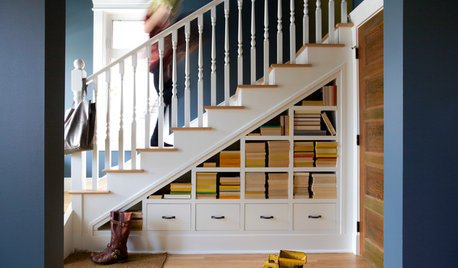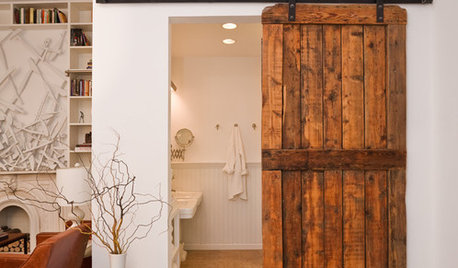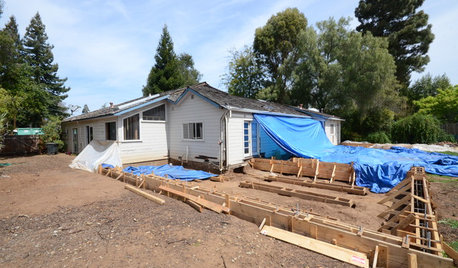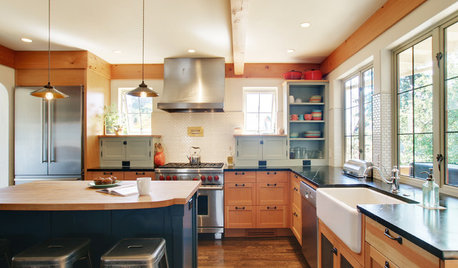Another...basement floor question!
girlgroupgirl
12 years ago
Related Stories

GREEN BUILDINGConsidering Concrete Floors? 3 Green-Minded Questions to Ask
Learn what’s in your concrete and about sustainability to make a healthy choice for your home and the earth
Full Story
ORGANIZINGPre-Storage Checklist: 10 Questions to Ask Yourself Before You Store
Wait, stop. Do you really need to keep that item you’re about to put into storage?
Full Story
LIGHTING5 Questions to Ask for the Best Room Lighting
Get your overhead, task and accent lighting right for decorative beauty, less eyestrain and a focus exactly where you want
Full Story
REMODELING GUIDESConsidering a Fixer-Upper? 15 Questions to Ask First
Learn about the hidden costs and treasures of older homes to avoid budget surprises and accidentally tossing valuable features
Full Story
KITCHEN DESIGN9 Questions to Ask When Planning a Kitchen Pantry
Avoid blunders and get the storage space and layout you need by asking these questions before you begin
Full Story
DOORS5 Questions to Ask Before Installing a Barn Door
Find out whether that barn door you love is the right solution for your space
Full Story
REMODELING GUIDESSurvive Your Home Remodel: 11 Must-Ask Questions
Plan ahead to keep minor hassles from turning into major headaches during an extensive renovation
Full Story
FEEL-GOOD HOMEThe Question That Can Make You Love Your Home More
Change your relationship with your house for the better by focusing on the answer to something designers often ask
Full Story
MOVINGHiring a Home Inspector? Ask These 10 Questions
How to make sure the pro who performs your home inspection is properly qualified and insured, so you can protect your big investment
Full Story
MOST POPULAR8 Questions to Ask Yourself Before Meeting With Your Designer
Thinking in advance about how you use your space will get your first design consultation off to its best start
Full StoryMore Discussions











worthy
girlgroupgirlOriginal Author
Related Professionals
Haslett Kitchen & Bathroom Designers · Manchester Kitchen & Bathroom Designers · Montebello Kitchen & Bathroom Designers · Saratoga Springs Kitchen & Bathroom Designers · Blasdell Kitchen & Bathroom Remodelers · Lomita Kitchen & Bathroom Remodelers · Mooresville Kitchen & Bathroom Remodelers · South Lake Tahoe Kitchen & Bathroom Remodelers · Middlesex Kitchen & Bathroom Remodelers · American Fork Architects & Building Designers · Four Corners Architects & Building Designers · Portsmouth Architects & Building Designers · Rocky Point Architects & Building Designers · Universal City Architects & Building Designers · Washington Architects & Building Designersworthy
girlgroupgirlOriginal Author
worthy
live_wire_oak
girlgroupgirlOriginal Author
girlgroupgirlOriginal Author
GreenDesigns
worthy
civ_IV_fan
worthy
badgergrrl
worthy
GreenDesigns
girlgroupgirlOriginal Author